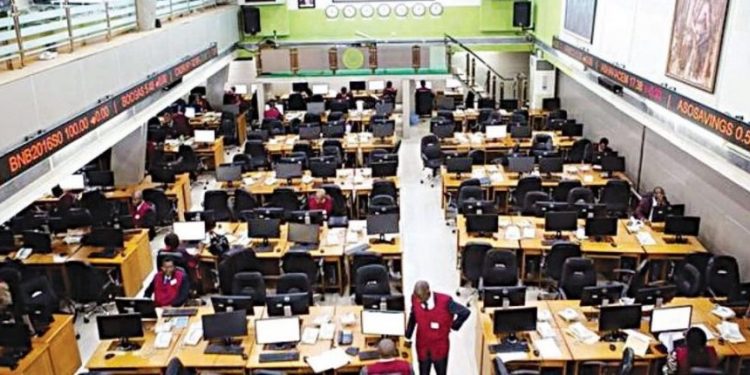The Nigerian stock market sustained its positive momentum from the previous week, buoyed by robust buying interest in key sectors such as telecommunications and banking. The All-Share Index surged by 3.7% week-on-week, closing at 105,085.25 points. Consequently, month-to-date (MTD) and year-to-date (YTD) returns increased to +5.1% and +40.5%, respectively.
Despite a decline in trading volume and value by 17.8% and 51.4% respectively, sectoral performance was mixed. The Banking (+12.8%), Insurance (+2.5%), Consumer Goods (+1.4%), and Industrial Goods (+0.2%) indices recorded gains, while the Oil & Gas (-0.1%) index saw a slight decline.
Analysts expect investors to continue cherry-picking fundamentally sound stocks, although significant positive catalysts remain absent. However, anticipation of upcoming earnings releases from banks and potential dividend declarations is expected to bolster sentiments and support buying activities on the bourse.
Money Market and Fixed Income Trends
In the money market, the overnight (OVN) rate remained elevated, hitting a five-year high of 33.0% before softening to 31.1% by the end of the week. This was primarily attributed to liquidity constraints, which were partially alleviated by inflows from maturing bonds and accompanying coupon payments, resulting in a net long position of NGN2.50 trillion.
Looking ahead, analysts anticipate the OVN rate to remain elevated, driven by debits for the March 2024 bond Primary Market Auction (PMA) alongside expected inflows from coupon payments.
In the Treasury bills market, there was a slight bullish sentiment as the average yield across the market dipped by 14bps to 18.7%. Market players moved to cover lost bids at the NTB auction and cherry-picked instruments with attractive yields. The Central Bank of Nigeria (CBN) allotted exactly what was offered at the NTB auction, with stop rates ranging from 16.24% to 21.12%.
On the other hand, the Treasury bonds secondary market traded with bearish sentiments, as the average yield expanded by 39bps to 18.4%. Sell pressures were observed across the benchmark curve, particularly on the MAR-2027, JUN-2033, and JUN-2038 bonds.
Analysts at Cordros Capital foresee potential lower demand for bills and higher yields in the Treasury bills secondary market due to the liquidity deficit, with market focus shifting to the March 2024 bond PMA. Globally and domestically, anticipated monetary policy adjustments and supply-demand dynamics are expected to keep yields in the FGN bonds secondary market elevated in the short term.















